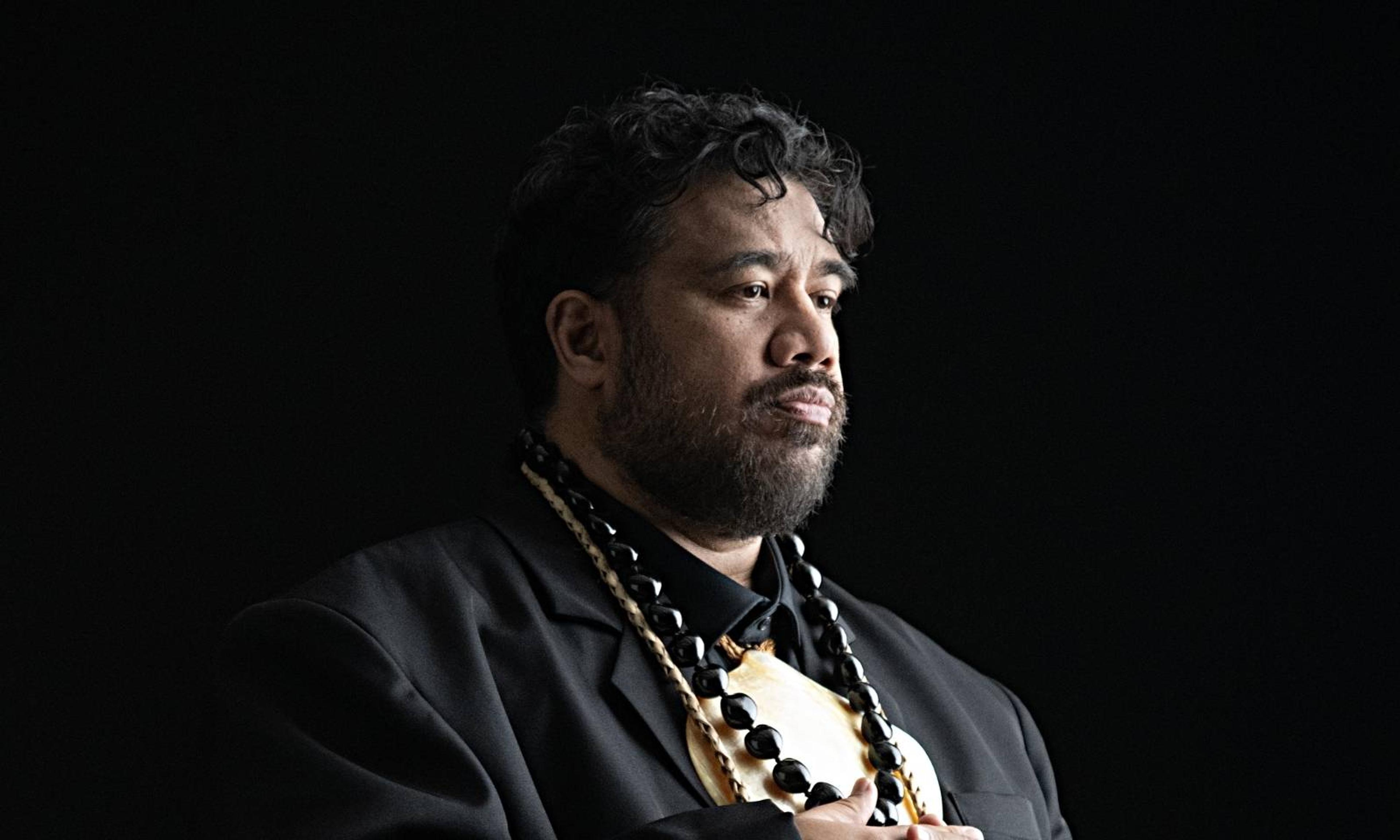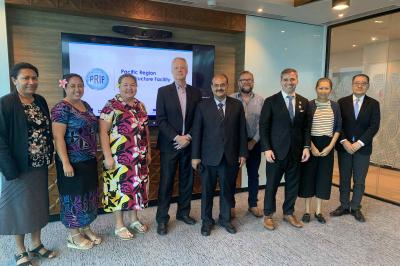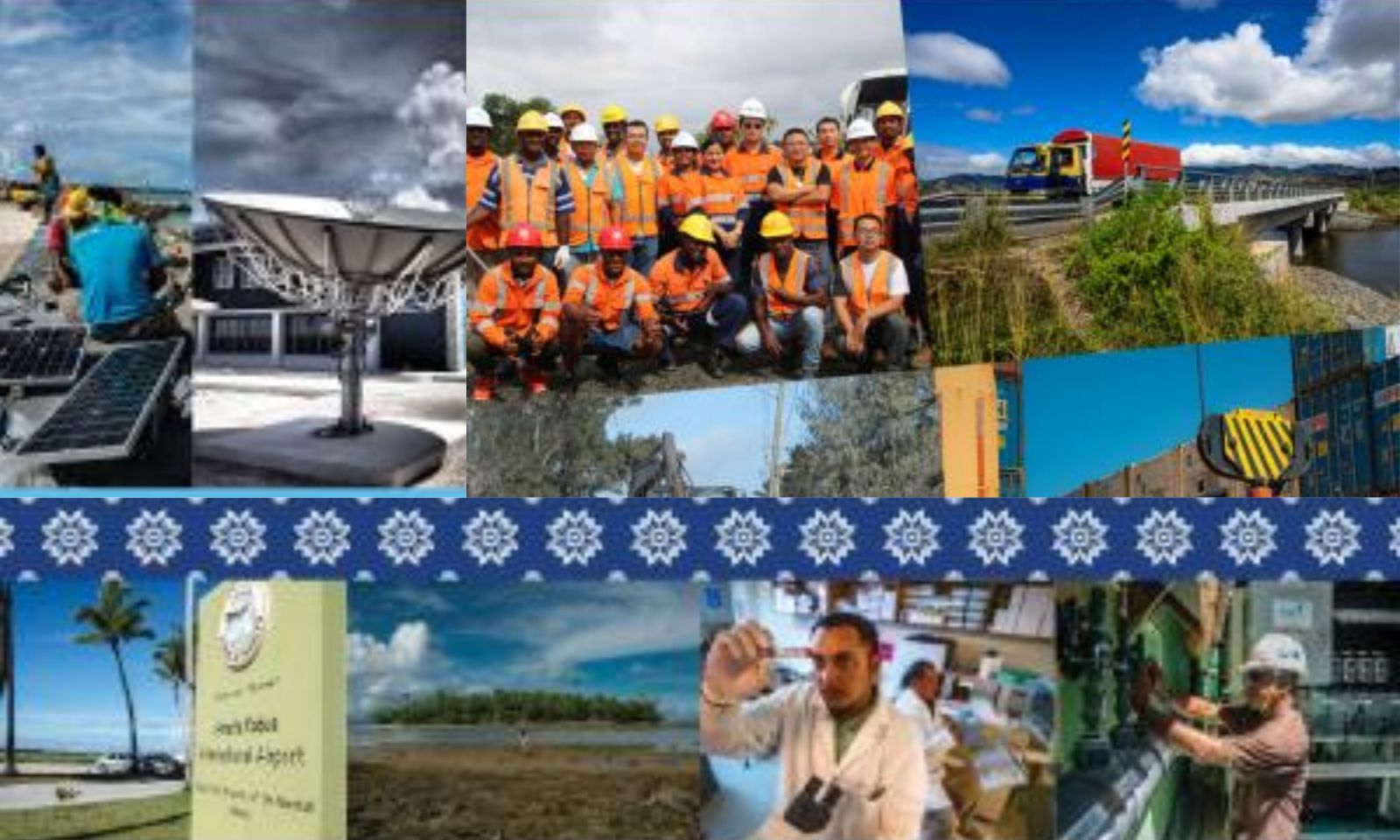

Photo/Pacific Region Infrastructure Facility
Pacific leaders urge better support for regional infrastructure
With a focus on aligning assistance with local needs and priorities, the nations called for sustainable development strategies and collaboration.



UK royal arrest sends shockwaves as Jeffrey Epstein files reference Pacific islands - reports

Second Apology: Fijian artist’s bold new film demands more for Pacific communities



UK royal arrest sends shockwaves as Jeffrey Epstein files reference Pacific islands - reports

Second Apology: Fijian artist’s bold new film demands more for Pacific communities
Pacific island nations are calling for more assistance to finance and build major infrastructure projects, despite progress made in recent years.
The governments insist that any help align with their needs and priorities.
At the recent Pacific Infrastructure Conference held in Brisbane, Australia, leaders from various Pacific nations, as well as representatives from countries like New Zealand, Australia, Japan, the United States, and the United Kingdom, gathered to discuss their infrastructure needs with development partners, investors, and businesses.
The event attracted 652 delegates, including 80 speakers and over 40 exhibitors from 20 countries, spanning three days of discussions, presentations, and networking opportunities.
Key highlights from the conference included:
The Asian Development Bank (ADB) sent a big delegation, with around 25 representatives who participated in discussions and meetings.
Pacific leaders shared their infrastructure priorities during breakout sessions, drawing huge interest from consulting firms and contractors.
The Australia Pacific Islands Business Council signed two agreements with the Niue Chamber of Commerce and the New Caledonia Chamber of Commerce and Industry to strengthen regional business ties, bringing the total number of such partnerships to 11.
Many Pacific Island chambers of commerce and private sector representatives were actively involved, demonstrating the vital role of the private sector in shaping infrastructure needs.
Over 40 exhibitors showcased various technologies and services related to renewable energy, digital connectivity, water management, transportation, and construction.
Taks at the conference focused on sustainability, building resilience against climate change, and the importance of hiring local workers and businesses.

Photo/PRIF
In a statement, Simon Gorman, President of the Australia Pacific Islands Business Council, highlights the importance of collaboration in addressing the region’s infrastructure challenges.
"The participation of more than 620 delegates underlines the importance of collaboration, and the MOU signed with Niue and New Caledonia chambers shows how business councils can help strengthen regional partnerships,” he says.
During the conference, a report titled, Building Together - five years of infrastructure partnership between Solomon Islands and Australia, was launched.
The report provides a snapshot of the 515 projects completed across the Solomons’ nine provinces worth over SBD5 billion (NZ$1.06b), with a focus on using local firms and workers to create jobs in the community.
Solomon Islands' Minister for National Planning and Development Coordination, Rexon Ramofafia, says the Solomon Islands-Australia partnership sets a high standard in the Pacific for local contracts and job creation.
He says good infrastructure development is built on trust, strong partnerships, and ensuring that local priorities are met.
Australian High Commissioner to Honiara, Rod Hilton, says the Building Together report reflects Australia’s commitment to projects that have social and economic impacts, boost local employment, and support local companies.
He says that while building roads and schools is crucial, the real challenge lies in how these projects are delivered, ensuring they are resilient against climate change.
“The report demonstrates there is more to infrastructure than building roads, bridges, schools or ports,” Hilton says.
“While hard infrastructure is important, how we deliver the infrastructure is the real challenge, and that means building climate resilience, working with the government and private sector to design, deliver and maintain a better standard of infrastructure that serves communities and enables them to grow and prosper.”
Research has shown that Australia’s strategy of focusing on local procurement results in a local economic benefit of A$2.50 (NZ$2.78) created by every dollar spent in aid.
Solomons' Minister of Infrastructure Development, Ricky Fuo’o, says the emphasis is on developing infrastructure that is not just high quality but also resilient and manageable with the help of local suppliers.

Photo/PRIF
“The report features many Solomon Islands companies who are here today, and you should be congratulated for your efforts,” he says. “We want infrastructure to be high quality, resilient and easily operated and maintained using local suppliers.
“The newly passed National Building Code, a 30-year effort, now offers us uniform standards to guide better infrastructure development in the future.”
The Pacific Infrastructure Conference 2025 was hosted by the Australia Pacific Islands Business Council, the Australia-Papua New Guinea Business Council, and the Australia-Fiji Business Council, with the support of the Australian Government’s Office of the Pacific as a major sponsor, along with sponsorship from a range of government and business organisations from Australia and New Zealand.
Copies of Building Together – five years of infrastructure partnership between Solomon Islands and Australia can be downloaded from Australia’s Solomon Islands Infrastructure Programme website: www.siip.com.sb/publications